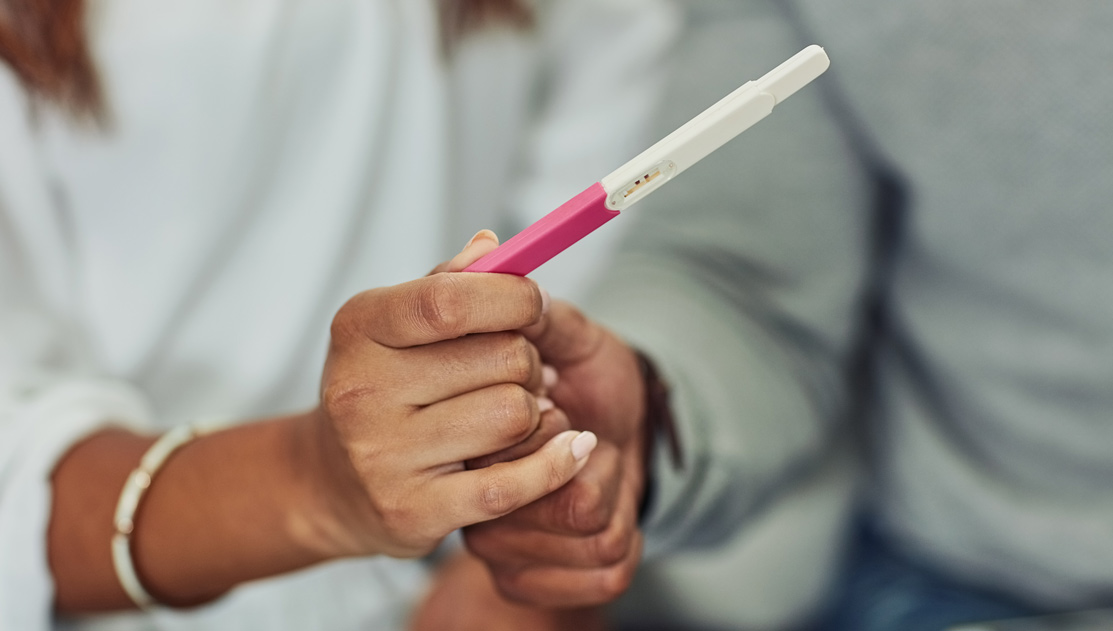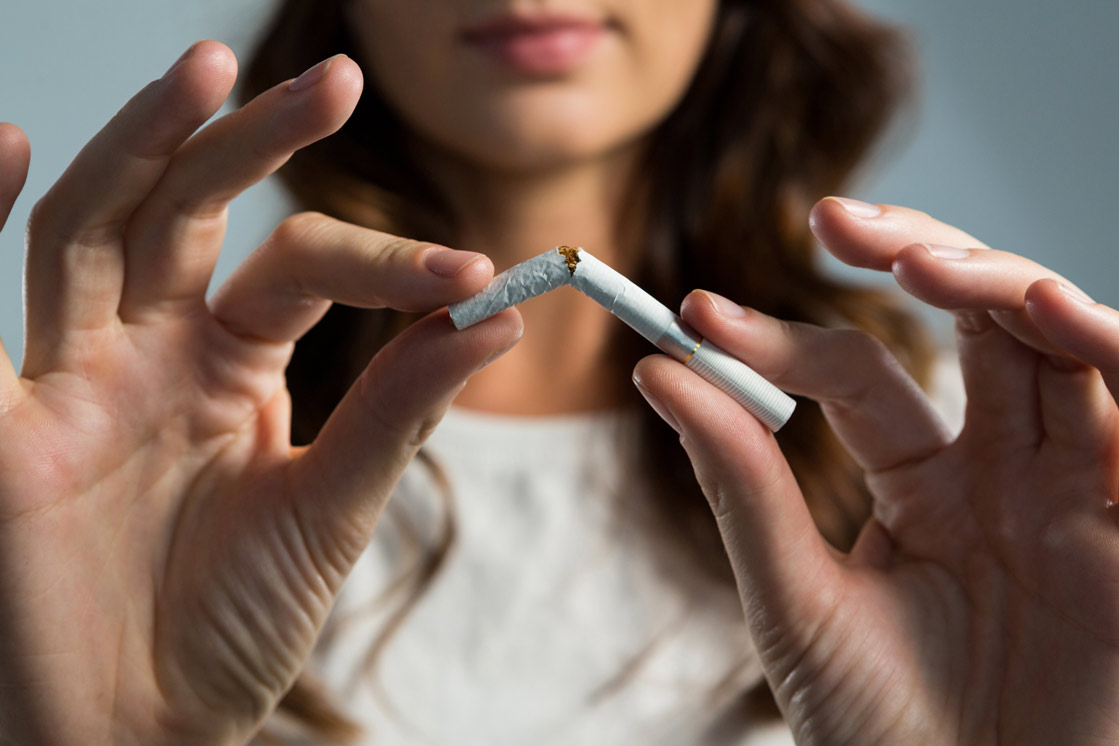Can you make lifestyle changes to optimise your fertility? Yes! If you’re trying for a baby, it probably feels like so much is out of your control – especially if you’ve been trying for a while. But the good news is that there are lifestyle changes to optimise your fertility that you can pursue, backed by scientific knowledge on how to help the body work best.
And while there are no guarantees, it’s always wise to do everything you can to give yourself the best chance. Let’s break down some of the key lifestyle changes you can make to try to optimise your fertility.
How to boost fertility: a holistic approach
When it comes to fertility, both mind and body may be in play in ways that science is still getting to grips with, particularly when it comes to stress. While there is still much work to be done on the subject, and we know that women often conceive in situations of extreme stress (such as warzones), there are key mechanisms in the body that chronic stress can affect. Stress can trigger a complicated array of responses in the body incorporating the nervous systems, immune system and the endocrine system (that makes hormones). The stress response gives priority to survival over things like reproduction and growth. Indeed, a recent research review on stress and fertility concluded that while more research is needed, stress may ‘negatively affect the mechanisms assuring successful female reproduction such as ovulation, ovarian steroidogenesis (key to the maintenance of reproductive tissues, ovulation, ovarian function and pregnancy foundation), endometrial (womb lining) development, follicular (egg sac) maturation or implantation.’
When all you want is a baby, and you worry about not conceiving, it is maddening to be told: ‘relax and don’t stress.’ And the last thing you should be doing is stressing about stress! So try to look at it this way: doing what you can to look after both body and mind when you have lots on your plate, can’t hurt and can only help. Accordingly, lifestyle changes to optimise your fertility should incorporate both body and mind.
Destressing strategies
Look for simple ways to trim the stress out of your life. For example:
- Could you delegate more at work?
- Can you ask your partner to do more at home?
- Could you hire a cleaner?
There are also many great stress relief techniques such as:
- Meditation (try apps like Headspace or Insight Timer) – as little as five minutes a day can make a difference
- Yoga (if you can’t attend a class in person, YouTube has many great alternatives)
- Exercise
- Having a good bedtime routine (no screens for two hours before bed) and getting enough rest
- Cutting down social media time and news exposure
- Alternative therapies like acupuncture, massage and reflexology can be great stress-relievers to many, helping to soothe the stress response and release feel-good chemicals that aid the parasympathetic nervous system (your body’s all-important ‘rest and digest’ system).
Food for fertility
We all know the adage ‘you are what you eat’. Indeed, it appears food can affect fertility. Recently, an expansive review analysing available research concerning food for fertility surmised that compliance to ‘healthy diets favouring seafood, poultry, whole grains, fruits and vegetables, are related to better fertility in women and better semen quality in men.’
Yes it is more expensive but if possible, choose organic poultry, fruit and veg – the more you can minimise exposure to chemicals like pesticides, the better. Eat lots of omega 3-rich foods like fish but try to avoid mercury exposure by choosing sardines and salmon instead of tuna. Eat less red meat. Cut processed foods out as much as you can, which means keeping away from foods with ingredient lists on their packaging. One food, one ingredient = whole foods.
Cut out smoking or vaping and lay off the booze
A key component in lifestyle changes to optimise your fertility is what we might call ‘clean living’. No smoking or vaping, no recreational drugs, and cutting your alcohol intake right down.
Research studies have demonstrated connections between smoking and drinking and lowered fertility. And even though vaping is a new habit that hasn’t been researched half as much, toxins that are known to be injurious to fertility are usually lurking in e-cigarette aerosols and there are indeed worries about the possible effects of vaping on fertility.
Exercise for fertility
There really is no end to the benefits of regular exercise. It helps to maintain heart and lung health, is one of the greatest anti-anxiety drugs known to man (without the side effects) and crucially can help to balance hormones too. So if you’re considering lifestyle changes to optimise your fertility, dust off those training shoes or that yoga mat.
A word of caution though: When you’re trying to optimise your fertility, keep the exercise moderate. If you are already of a healthy weight, too much intensive exercise can interfere with ovulation and bring down levels of progesterone, a hormone essential for pregnancy. If you’re looking to conceive in the near future, restrict intensive exercise (like fast cycling or running) to below 1 hour a day and under five hours over the whole week.
Look after your emotions: consider fertility counselling
The process of trying to conceive, especially if you need assisted conception techniques such as IVF, can be stressful. And sometimes you need to talk to an experienced person who has no personal ‘skin in the game’ in your situation. Often even the closest of couples find it difficult to talk through everything they’re feeling to their loved ones and sometimes even to each other. They may feel they need to ‘put a bow on things’ in order not to worry others, or they may feel that friends and family who’ve had no trouble conceiving simply can’t understand what they’re going through. This is where fertility counselling comes in. Here at The Fertility and Gynaecology Academy, we often recommend it to couples undergoing assisted conception. Talking through frustrations can help to decompress pent up stress, and as explained, too much stress isn’t helpful for fertility.
Try to maintain a healthy weight
Viktoriya Khoma, a natural health coach at The Fertility and Gynaecology Academy says: “As women, our cycles are maintained by a finely tuned hormonal balance. And unfortunately being either underweight or overweight can affect that hormonal balance. It’s not about beach bodies, it’s about being a healthy weight. So if you’re trying to get pregnant, it’s a good idea to consider your BMI.”
Body mass index (BMI) is an equation using your height and weight that you can use to gauge if you are a healthy weight (a BMI between 18.5 and 24.9).
Minimise your exposure to chemicals and plastics
Increasingly, science is discovering that too much ingestion of chemicals that appear in many common perfumed products and plastics could be damaging to male and female fertility, as covered in our article here. Now keep in mind that there is no way to avoid these chemicals completely – they are everywhere, and as explained, stressing out about these things is not helpful. However what you can do is take some simple steps to reduce you and your partner’s exposure, such as:
- Not microwaving food in plastic containers
- Choosing unfragranced soaps
- Not drinking hot drinks from plastic cups
- Avoiding cling film
- Seeking out a plant-based range of home cleaning products
- Buying a water filter
Seek out the right supplements
Are you getting enough of the vitamins and minerals you need? A number of key vitamins may be helpful to fertility. For example, scientists have reported that ingesting folic acid supplements in higher doses than the standard recommended to prevent neural tube defects has repeatedly been linked to lower chances of infertility, better results in assisted conception techniques and lower risk of miscarriage. Studies have linked low vitamin D levels to greater risk of infertility, and a recent systematic review suggested that vitamin D supplementation may help people with fertility problems achieve better outcomes.
Always exercise caution and check with your doctor though, because too much of some supplements can be harmful.
Get a personal plan
With all that the average woman or couple has on their plate, sometimes looking at ways to optimise your fertility can feel utterly overwhelming. You have work and home and personal relationships, and possibly even children to look after, and now you’re supposed to overhaul your lifestyle? This is where a natural health coach can help. Armed with the knowledge of ways to get the best out of your body, they can review where you are and identify ways to help you get where you want to go.
Here at The Fertility and Gynaecology Academy, we work with Viktoriya Khoma, a natural health coach with twenty years’ experience in natural health, fitness and nutrition. Viktoriya says: “I’ve spent many years helping clients get their bodies and minds baby-ready. When it comes to optimising your fertility, the best approach is a holistic one that takes every aspect of a person’s life into consideration. We all have different schedules and demands on us; we all need a tailored plan.”
Get checked out
It’s a frustrating fact of nature, but fertility does decline in a woman’s thirties – and as we always say here at The Fertility and Gynaecology Academy, time is fertility. If you have been trying for a while or are anxious that time is ticking, it’s wise to book in for fertility testing. This will tell you where you are and help you decide what to do next.
Here at The Fertility and Gynaecology Academy, our testing technology and expertise is second to none. To book a consultation with one of our expert team, call 020 7224 1880 or email info@fertility-academy.co.uk.







